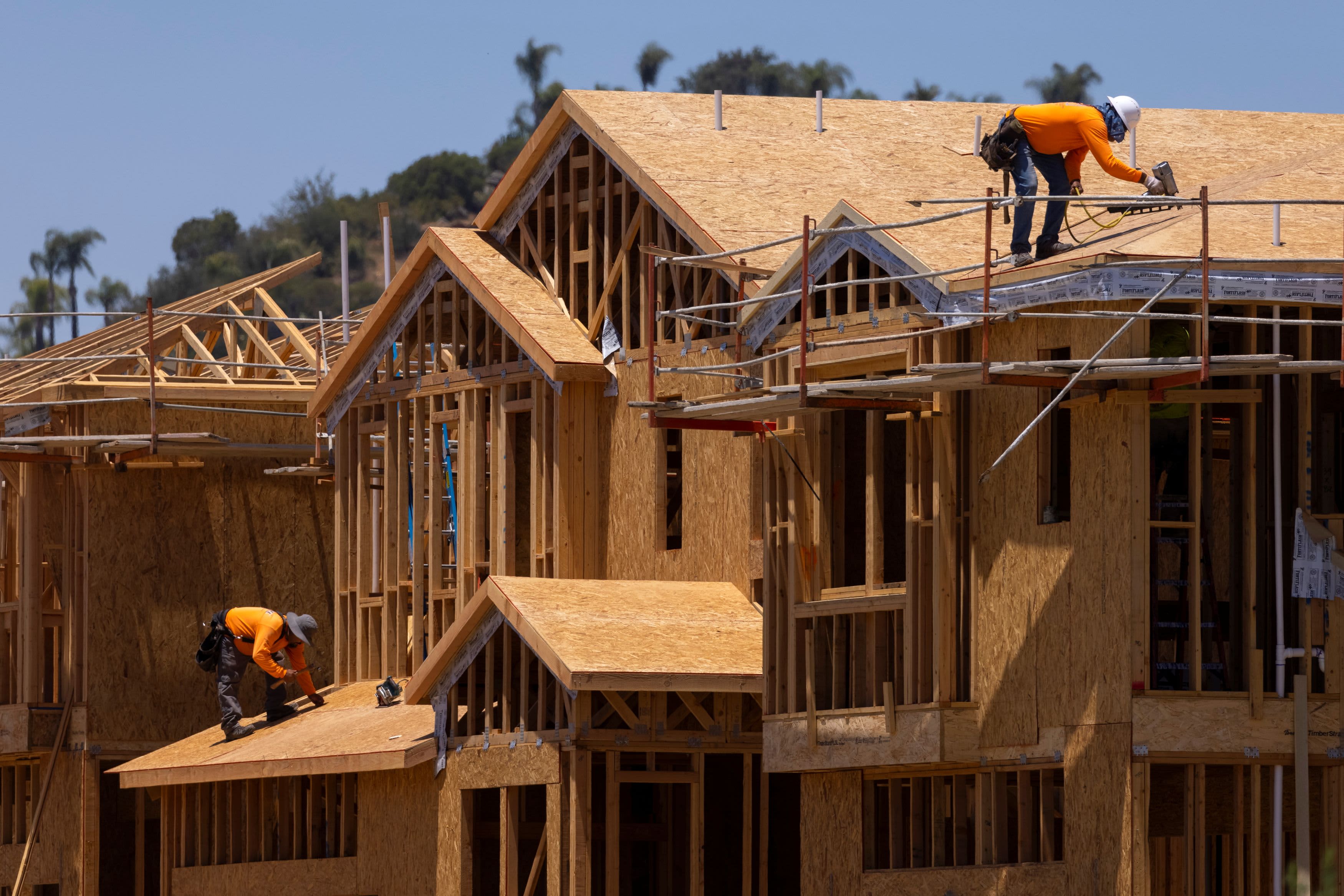Kyle Little, chief operating officer at New York-based wholesale distributor Sherwood Lumber, told CNBC on Thursday that the recent slide in lumber prices has rekindled demand after a massive runup earlier this year challenged the affordability of building projects.
“Over the last three weeks we’ve seen renewed interest,” the industry veteran and former lumber trader said on “The Exchange.” ”Our renewed interest is now turning into actual orders and people placing business here for the second half of this year, most notably in the commercial segment and into the multifamily unit segment.”
Little’s comments Thursday came as lumber hit a low of $480.40 per thousand board feet, its lowest level since July 8, 2020, when lumber traded as low as $465 per thousand board feet. Lumber prices are on track for their 13th consecutive weekly loss after falling by more than 9%.
In June, lumber futures had tanked more than 40%, marking their worst month on record since 1978. The drop happened as Americans began traveling away from their homes after pandemic shutdowns, instead of pursuing renovation and building projects. Earlier this year in May, Lumber prices had hit an all-time high of $1,670.50 per thousand board feet on a closing basis after suffering their pandemic low in April 2020.
Current lumber prices make “absolute sense,” he said, referencing the industry’s recovery from pandemic-driven sell-offs in the first and second quarters of 2020, which were followed by a major increase in costs. In June, as lumber traded above $1,100 per thousand board feet, Little told CNBC he recommended people wait to begin their building projects, predicting further relief in wood prices.
On Thursday, Little said the lumber market is now “going through this equilibrium stage or search for equilibrium.”
“What we’re finding is the support level that follows the bottom end of that continual trend pre-Covid is very, very bullish,” Little said. “It’s also one that would be making a lot of us in the lumber world feel much more comfortable going and rebuilding inventory here for the second half of this year with the projected demand that we are now seeing.”
